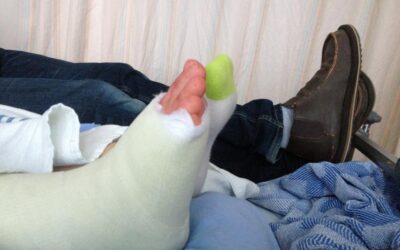Between the Lines: Stories of Brain Injury Survivors – (Part 3 of 6)
This is the third post in Between the Lines: Stories of Brain Injury Survivors. If you missed the beginning of Tony’s Journey, click here to read it.
In 2009, Tony Mok had his first stroke. Luckily, his wife recognized the signs, called 911, and he was rushed to hospital for medical treatment.
But let’s back up for a second: why was it so important for Tony to get to the hospital as soon as possible?
A stroke is what happens when blood stops flowing to any part of your brain. This damages your brain cells, and the type of stroke you have and your access to medical treatment will affect the amount of damage done. That’s why it was important for Tony to get to the hospital as soon as possible–to try and limit the amount of damage done to his brain cells.
The first hours and days after Tony’s stroke were a blur, as his team at the hospital quickly assessed his situation and went about treating the blood clot that had caused the stroke.
 Once things settled down, Tony had more time to focus on his new, confusing reality. As he recovered in the hospital, still in the early days of treatment, Tony wondered about some very big issues he would have to tackle. “Will I be able to provide for my family?” was one of them. The immensity of his situation was overwhelming, and Tony felt what anyone in his situation would feel: fear.
Once things settled down, Tony had more time to focus on his new, confusing reality. As he recovered in the hospital, still in the early days of treatment, Tony wondered about some very big issues he would have to tackle. “Will I be able to provide for my family?” was one of them. The immensity of his situation was overwhelming, and Tony felt what anyone in his situation would feel: fear.
Brain injuries can completely upend people’s lives. That’s why fear of the unknown is a common and understandable feeling to have, as a survivor of a brain injury. For Tony, sharing this emotional experience has helped him heal. So did access to support and recovery groups. That doesn’t mean things were smooth sailing all the way through, though–if you take a look at his Journey Map, you can see Tony has had ups and downs over the past 11 years. Coming up against roadblocks is normal, and that’s why it’s important for brain injury survivors to get the help they deserve.
Important steps for stroke recovery
If you or someone you know has had a stroke, it’s important to have access to recovery and support groups–not just for your physical health, but for your mental health as well. Below, we’ve collected some resources that Tony and his family found useful, and you might too:
- The First Fews Days After a Stroke -The Heart and Stroke Foundation
- Your Journey Through Stroke Guide – The Heart and Stroke Foundation
- Healing Brain –Learn more about common challenges brain injury survivors face on brainstreams.ca
- Returning to Life –Learn about different strategies for returning to activities you participated in pre-injury on brainstreams.ca
-
- Topics may include things like returning to work, driving again, setting goals and maintaining a healthy lifestyle for recovery
- After Stroke – March of Dimes
- Stroke Recovery Self Management – March of Dimes
Find a Brain Injury Organization
We strongly suggest getting in contact with your local Brain Injury Organization, as they will be familiar with the range of services available in your community. They’re an excellent source for support and advice, and can help you navigate the health system on your path to recovery. They exist to help you, so don’t forget about them! Our website has an excellent list of 300 plus brain injury resources that provide support and education. Explore our resource list:
- Find a Brain Injury Organization in your local area
- Look for a Brain Injury Support Group
Next week, we’ll continue to reflect on Tony’s journey and how counselling has played a big role in his personal life, as well as provide a variety of resources for acquired brain injury counselling in BC.



